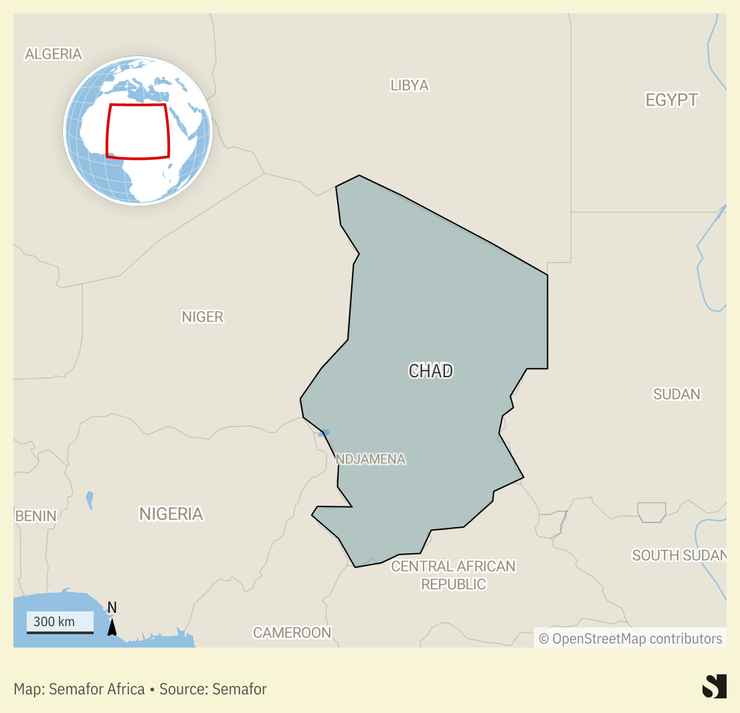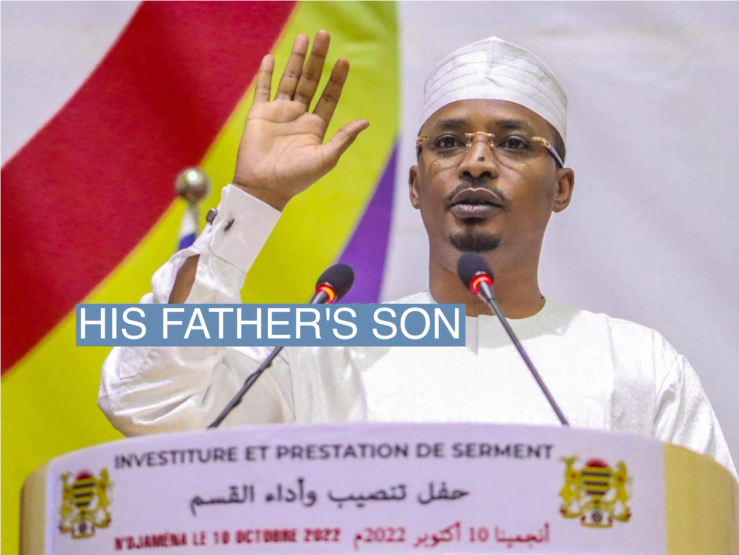The Facts
The killing of Chadian opposition leader Yaya Dillo on Feb.28 sparked a week of political upheavals that have the potential to destabilize the wider subregion.
Opposition groups described Dillo’s death as an assassination. The government claimed he fired at law enforcement officers at his party headquarters. The government also accused Dillo’s party of orchestrating an attack on the national security agency headquarters days before he was killed.
Three days after Dillo’s death, Chad’s interim president Mahamat Idris Deby announced his plans to contest the presidency in the election slated for May 6. Dillo was expected to run against Deby.
Know More
→ What’s Deby’s background? He seized power in 2021 after his father, former Chad President Idris Deby, was killed by rebels after 30 years in power. Mahamat initially announced an 18-month timeline to transition to democratic elections, but his administration passed resolutions that would keep him in office until 2024 and allow him to run. At least 50 protesters were killed in 2022 as the Deby-led government cracked down on demonstrators seeking democratic elections in the country.
→ How will Dillo’s death affect the election? “Holding elections in a repressive context will certainly pose risks to the country’s stability as the opposition is unlikely to accept the outcome,” said Ulf Laessing, Sahel program director at the Konrad Adenauer Foundation, a political think-tank. He said the credibility of the elections would be undermined and that other contenders may not run due to intimidation.
Similarly, Cameron Hudson, an Africa analyst at Washington-based think-tank CSIS, told Semafor Africa Dillo’s killing and arrests of Deby’s rivals had made the upcoming election in Chad “essentially meaningless.”
→ What does it mean for the region’s stability? Chad is surrounded by conflict-hit areas in Sudan and the Sahel which, Hudson argues, means political turmoil and an armed struggle would have major implications for the region.
“You might see Zaghawa fighters currently fighting in Sudan with the Rapid Support Forces return to Chad to support Deby,” said Hudson. “Similarly, Chadian rebel groups in neighboring Libya and the Central African Republic could see this as an opportunity to restart their war against the regime. You might see others, like Chad’s neighbors in the Sahel, try to come to his aid.”

→ What are the likely consequences of instability? Laessing said turmoil in Chad would also impact migration flows in the region. “If Chad plunges into instability then there will be more migration flows north. Eastern Chad is now the arrival point for more than half a million refugees from Sudan. But they will move on if there is chaos in Chad,” he noted.
→ What’s the West’s relationship with Chad? The U.S. has collaborated closely with Chad on security, helping fight insurgents in the region. U.S. Marine Corps Gen. Michael Langley, Commander, U.S. Africa Command in January met military leaders in Chad, and the U.S. last year disclosed that a $710 million humanitarian assistance package for the Sudan war would benefit countries including Chad for hosting refugees.
→ Why haven’t Western governments said much about the country? “Chad is key to stability in Central Africa as it is practically surrounded by neighbors where Russia and its mercenaries are active and seek to expand,” said Laessing. “That’s why Western powers are so silent about the killing last week and delayed transition.”
The U.S. has long called for a peaceful, democratic transition in Chad that now looks in jeopardy. “Western officials should stop talking about Chad as being in a transition to civilian, democratic rule,” said Hudson.


